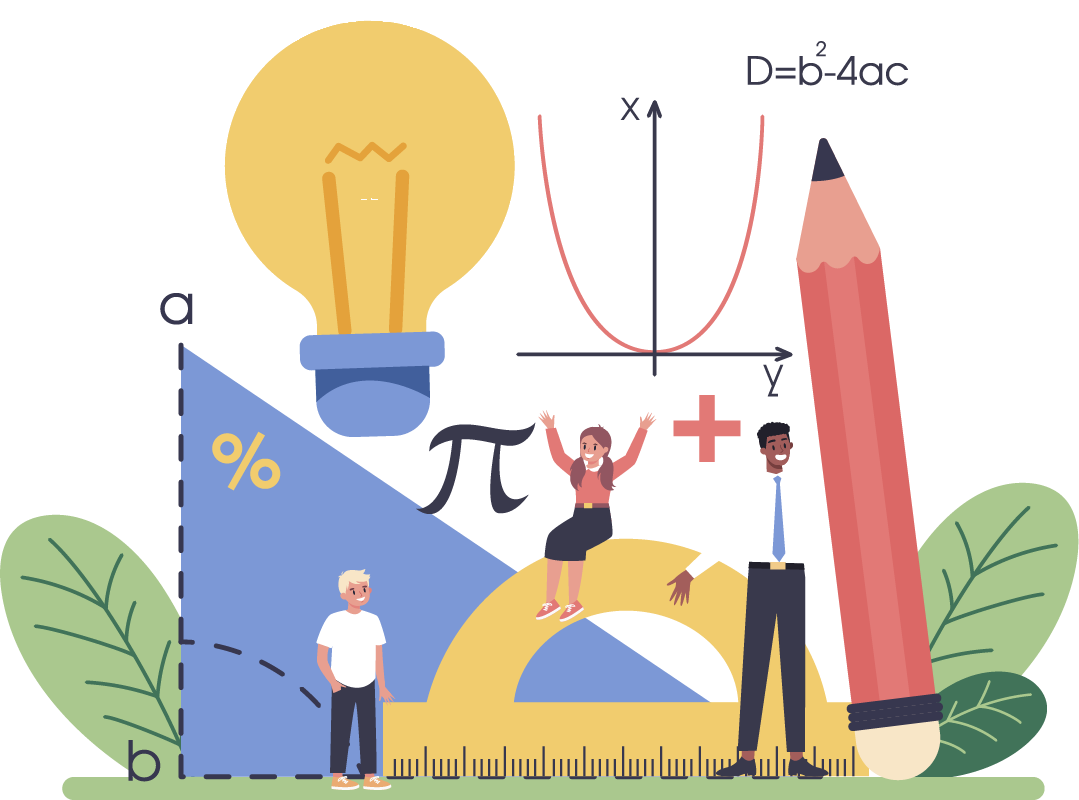The Integrated Math sequence, consisting of IM1, IM2, and IM3, is a comprehensive approach to teaching high school mathematics. Designed to blend various math disciplines into a cohesive learning experience, the sequence is often a source of confusion for students and parents alike. Here we’ll demystify these courses, clarifying the topics in each course and how they build on one another.
What is Integrated Math?
Integrated Math is an alternative to the traditional high school math pathway, which typically separates Algebra, Geometry, Algebra 2/Trigonometry, and Precalculus into distinct courses. Instead, Integrated Math weaves together concepts from these areas so that students can see the connections between different math topics. This approach reflects the way math is used in real-world applications and makes it more relevant and engaging.
The Integrated Math Sequence
IM1: Building a Strong Foundation
IM1, or Integrated Math 1, is the starting point of this sequence. Generally, students start the sequence in 9th grade, but advanced learners can begin in 8th grade. IM1 introduces students to fundamental concepts across algebra, geometry, and statistics.
- Algebra: IM1 covers the basics of algebra, including linear equations, inequalities, and functions. Students learn to solve and graph equations, laying the groundwork for more complex problem-solving.
- Geometry: The geometry component of the course introduces students to basic shapes, congruence, and transformations. Students begin to understand how algebra and geometry are interconnected.
- Statistics: Basic data analysis and probability are also introduced in IM1. Students learn to interpret and present data and are taught skills that are increasingly important in a data-driven world.
IM1 is crucial for building a solid foundation. Success in this course sets a student up for more advanced mathematical thinking in the following years.
IM2: Expanding and Deepening Understanding
IM2, or Integrated Math 2, builds on the concepts learned in IM1 and introduces more complex topics.
- Algebra: Students delve deeper into quadratic functions, polynomials, and systems of equations. Other types of functions such as exponential functions with growth and decay models are introduced. The algebraic skills gained in IM1 are expanded to include more sophisticated methods of solving equations.
- Geometry: The geometry component covers more topics like similarity, basic triangle trigonometry, circles, and analytic/3D geometry (finding area and volume). Students begin to apply their algebraic skills to geometric problems, fostering a more integrated understanding.
- Statistics: IM2 expands on the statistics from IM1, focusing on probability and the interpretation of more complex data sets. This helps students develop a better understanding of randomness and variation.
IM2 is designed to solidify a student’s understanding of how mathematical concepts connect.
IM3: Preparing for Advanced Math
IM3, or Integrated Math 3, is the culmination of the Integrated Math sequence. It prepares students for higher-level math courses such as Pre-Calculus, AP Calculus, or AP Statistics.
- Algebra: IM3 covers more advanced algebraic concepts, including rational, exponential, and logarithmic functions, sequences and series, and advanced polynomial functions with transformations. These topics are essential for the math used in higher education.
- Geometry: In IM3, the focus shifts to the application of trigonometric identities and the exploration of more complex geometric properties. This course ties together all the geometric concepts learned in the previous courses.
- Statistics: IM3 often includes an introduction to inferential statistics. Students learn to make predictions or inferences based on data, a critical skill in many fields, from science to economics.
By the end of IM3, students should have a well-rounded mathematical education and be well-prepared for comes next.

How We Can Help
At MathTowne, we understand that the Integrated Math sequence can be challenging. Our experienced tutors are here to guide students through the integrated math sequence, ensuring they build the skills and confidence needed to succeed. Whether your student is just starting IM1 or needs support in IM3, we provide personalized tutoring that meets their unique needs.
Get in Touch! If you or your student needs help with any of the Integrated Math courses, don’t hesitate to reach out. We’re here to help make math less intimidating and more manageable, one concept at a time.

Yuki is a skilled educator with a degree in Chemistry from Carnegie Mellon University. She discovered her passion for teaching math after tutoring at an after-school program. With five years of tutoring experience, Yuki creates a supportive learning environment for students. Outside of tutoring, she enjoys trying new cuisines and playing piano.
